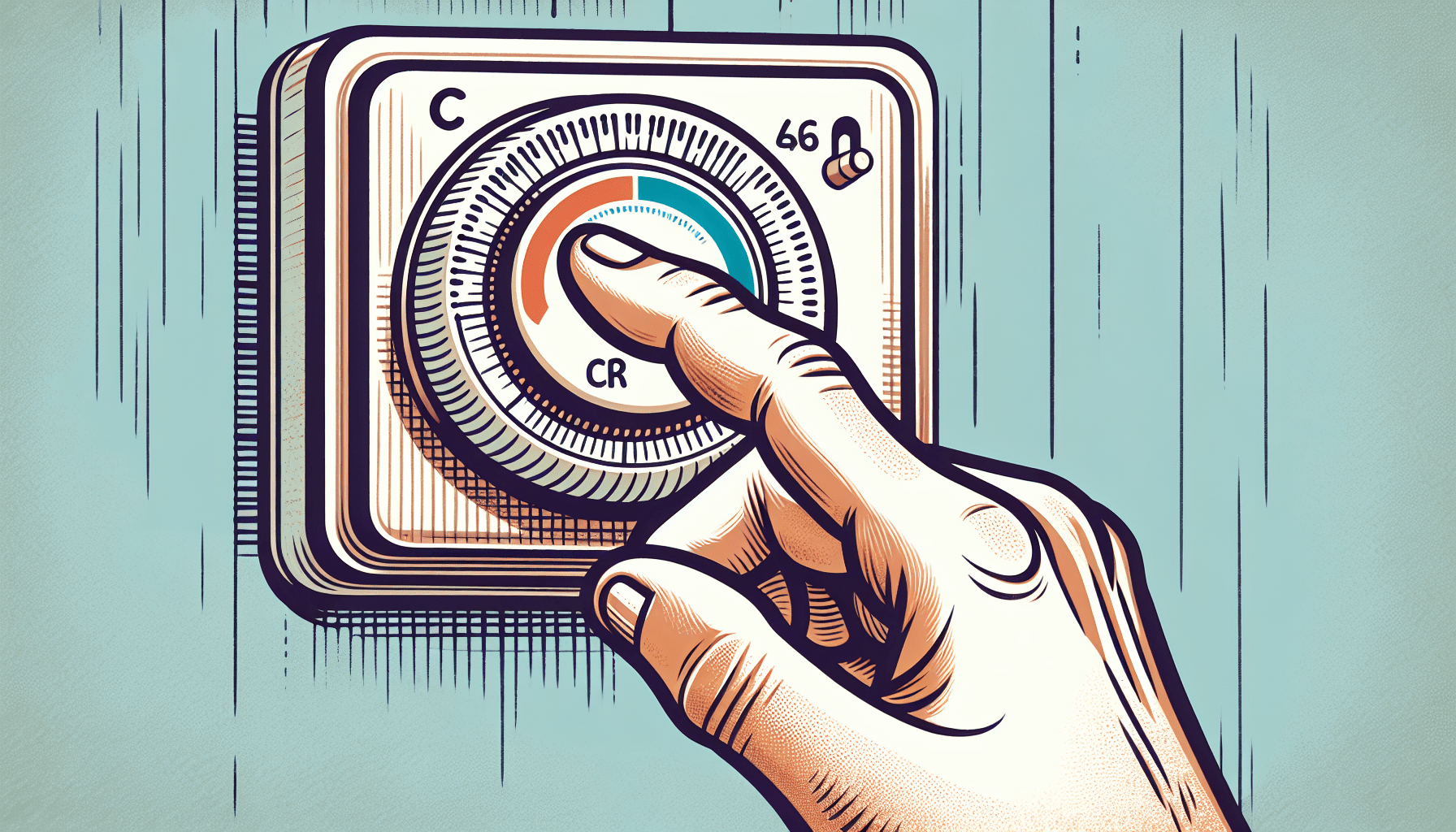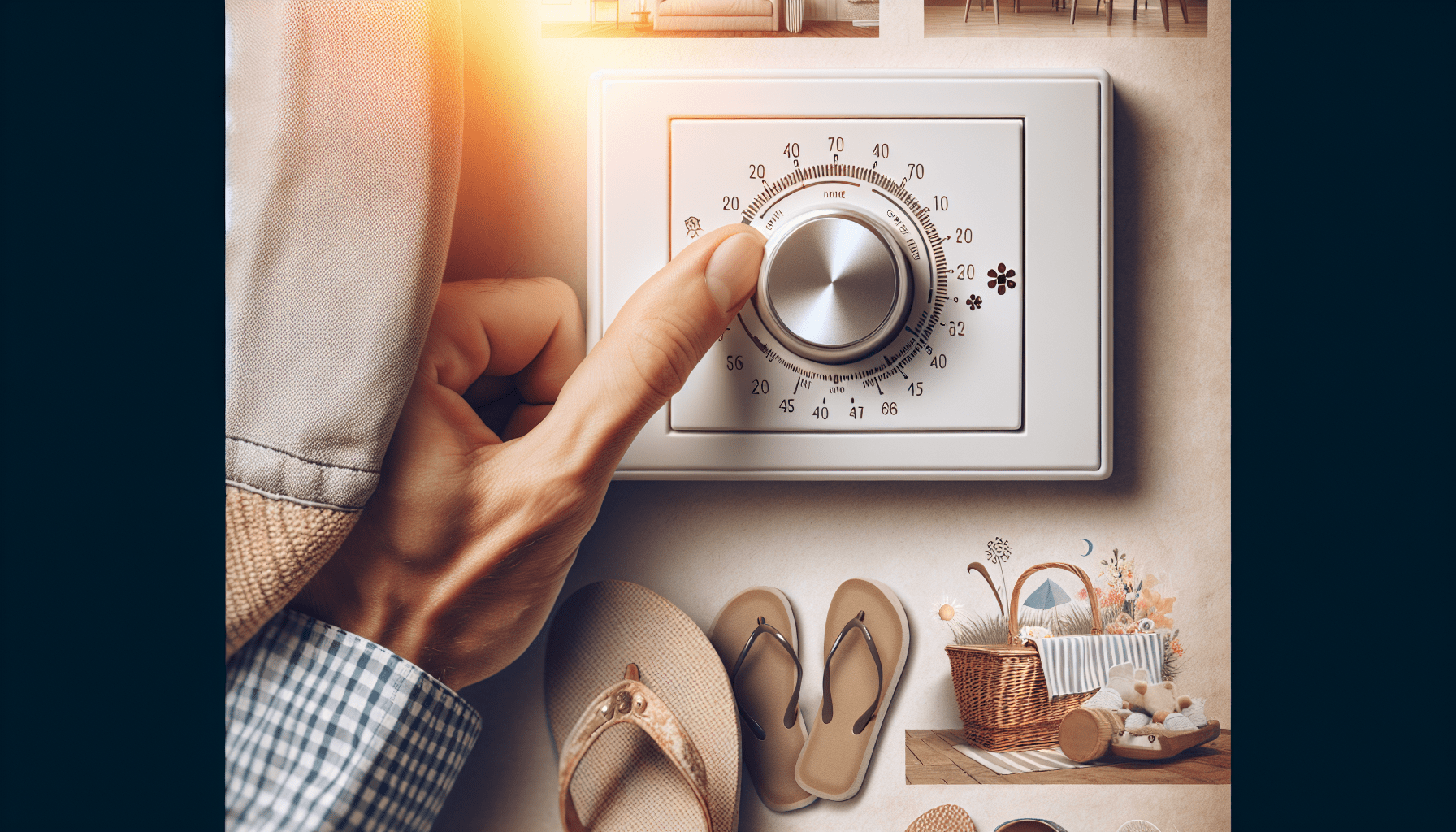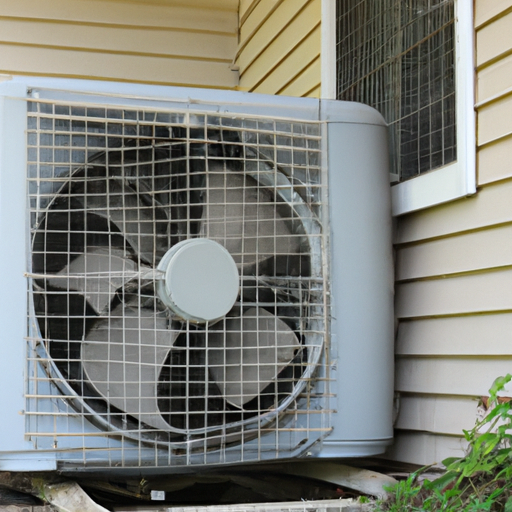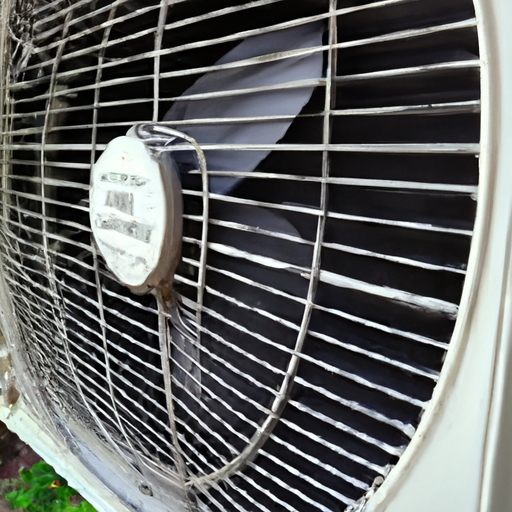Welcome to a helpful guide on how to get your air conditioning system ready for the upcoming summer months! As the temperatures rise, it’s important to ensure that your AC unit is in top-notch condition to keep you cool and comfortable. By following these simple tips and maintenance tasks, you can ensure optimal performance and energy efficiency from your air conditioning system all summer long. Let’s dive in and get your AC system summer-ready! Hey there, are you ready to beat the summer heat with a well-functioning air conditioning system? If so, you’ve come to the right place! In this guide, we’ll walk you through the best ways to prepare your air conditioning system for the upcoming summer season. By following these tips and tricks, you can ensure that your AC unit is in optimal condition to keep you cool and comfortable all summer long. Let’s get started!

Check and Replace Air Filters Regularly
One of the most important tasks in preparing your air conditioning system for summer is checking and replacing the air filters. Dirty filters can restrict airflow, reduce the efficiency of your AC unit, and lead to increased energy consumption. By replacing the air filters regularly, you can improve the air quality in your home and extend the lifespan of your system.
How Often Should You Replace Your Air Filters?
You should replace your air filters every 1-3 months, depending on factors such as the type of filter, the number of occupants in your home, and the presence of pets. If you have pets, allergies, or smoke indoors, you may need to replace the filters more frequently to maintain optimal indoor air quality.
Clean the Outdoor Unit
Another important step in preparing your air conditioning system for summer is cleaning the outdoor unit. Over time, dirt, leaves, and other debris can accumulate on the condenser coils, reducing the efficiency of your AC unit. By cleaning the outdoor unit, you can improve airflow, reduce energy consumption, and prevent damage to the system.
How to Clean the Outdoor Unit
- Turn off the power to the AC unit.
- Remove any debris, such as leaves and twigs, from the exterior of the unit.
- Use a garden hose to gently clean the condenser coils, being careful not to damage them.
- Trim any vegetation around the unit to ensure proper airflow.
- Turn the power back on and check for any unusual noises or odors coming from the unit.
Schedule a Professional Maintenance Service
While there are several tasks you can perform yourself to prepare your air conditioning system for summer, it’s also important to schedule a professional maintenance service. A qualified HVAC technician can inspect your system, check for any issues, and perform necessary repairs to ensure that your AC unit is in top condition for the summer months.
Benefits of Professional Maintenance
Having your air conditioning system serviced by a professional technician has several benefits, including:
- Improved efficiency and performance
- Increased lifespan of your system
- Reduced risk of breakdowns and costly repairs
- Enhanced indoor air quality
Adjust the Thermostat Settings
To keep your home cool and comfortable during the summer months, it’s important to adjust the thermostat settings accordingly. Setting your thermostat to a higher temperature when you’re away from home can help reduce energy consumption and lower your utility bills. Consider investing in a programmable thermostat to set a schedule that suits your lifestyle and preferences.
Ideal Thermostat Settings for Summer
During the summer months, it’s recommended to set your thermostat to around 78 degrees Fahrenheit when you’re at home and increase the temperature by a few degrees when you’re away. This can help maintain a comfortable indoor temperature while minimizing unnecessary energy usage.

Seal and Insulate Your Home
Proper insulation and sealing can help prevent cool air from escaping your home and reduce the workload on your air conditioning system. Inspect your windows, doors, and other potential air leaks to ensure that your home is properly sealed and insulated. Adding weatherstripping or caulking can help improve energy efficiency and keep your home cool during the summer.
Benefits of Sealing and Insulating Your Home
By sealing and insulating your home, you can enjoy the following benefits:
- Reduced energy costs
- Increased comfort and indoor air quality
- Enhanced efficiency of your air conditioning system
- Extended lifespan of your HVAC equipment
Consider Installing a Ceiling Fan
In addition to your air conditioning system, installing a ceiling fan can help circulate air and improve the overall comfort in your home. Ceiling fans can create a breeze that makes you feel cooler without lowering the thermostat setting. By using a ceiling fan in conjunction with your AC unit, you can optimize airflow and maintain a comfortable temperature indoors.
Tips for Using Ceiling Fans Effectively
To maximize the benefits of a ceiling fan, consider the following tips:
- Set the fan to run counterclockwise in the summer to create a cooling effect.
- Use the fan in conjunction with your air conditioning system to distribute cool air more effectively.
- Adjust the fan speed based on your comfort level and the temperature in your home.
Monitor Your Indoor Humidity Levels
High humidity levels can make your home feel warmer and less comfortable, even if the temperature is set to a comfortable level. It’s important to monitor and control indoor humidity levels to maintain a comfortable and healthy living environment. Consider using a dehumidifier to reduce excess moisture in the air and improve indoor air quality.
Ideal Indoor Humidity Levels
During the summer months, it’s recommended to maintain indoor humidity levels between 30-50% for optimal comfort and health. Excess humidity can lead to mold growth, musty odors, and respiratory issues, so it’s important to keep humidity levels in check.
Upgrade to a High-Efficiency Air Conditioning System
If your current air conditioning system is outdated or inefficient, it may be time to consider upgrading to a high-efficiency model. High-efficiency air conditioners can help reduce energy consumption, lower utility bills, and provide better cooling performance for your home. Consult with an HVAC professional to determine the best option for your specific needs and budget.
Benefits of High-Efficiency Air Conditioning Systems
Upgrading to a high-efficiency air conditioning system offers several advantages, including:
- Lower energy costs
- Improved comfort and air quality
- Reduced environmental impact
- Enhanced features and technology for better performance
Stay Proactive with Regular Maintenance
Once you’ve prepared your air conditioning system for summer, it’s important to stay proactive with regular maintenance throughout the season. By performing routine tasks, such as cleaning the filters, checking for any issues, and scheduling professional inspections, you can ensure that your AC unit remains in optimal condition and operates efficiently.
Tips for Maintaining Your Air Conditioning System
To keep your air conditioning system running smoothly, consider the following tips:
- Clean or replace air filters regularly.
- Keep the outdoor unit free of debris.
- Schedule annual maintenance with a qualified technician.
- Monitor the performance of your AC unit for any signs of issues.
In conclusion, preparing your air conditioning system for summer is essential for staying cool and comfortable during the hot months. By following these best practices and tips, you can ensure that your AC unit is in top condition and ready to tackle the summer heat. Remember to stay proactive with maintenance and seek professional help when needed to keep your air conditioning system running smoothly. Enjoy a cool and relaxing summer with a well-prepared air conditioning system!




